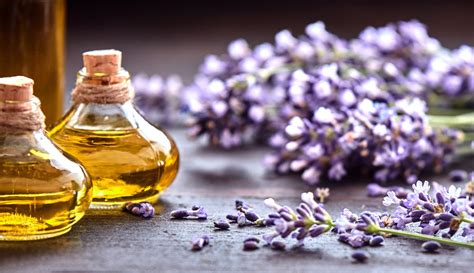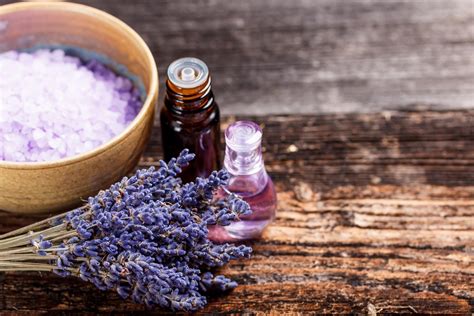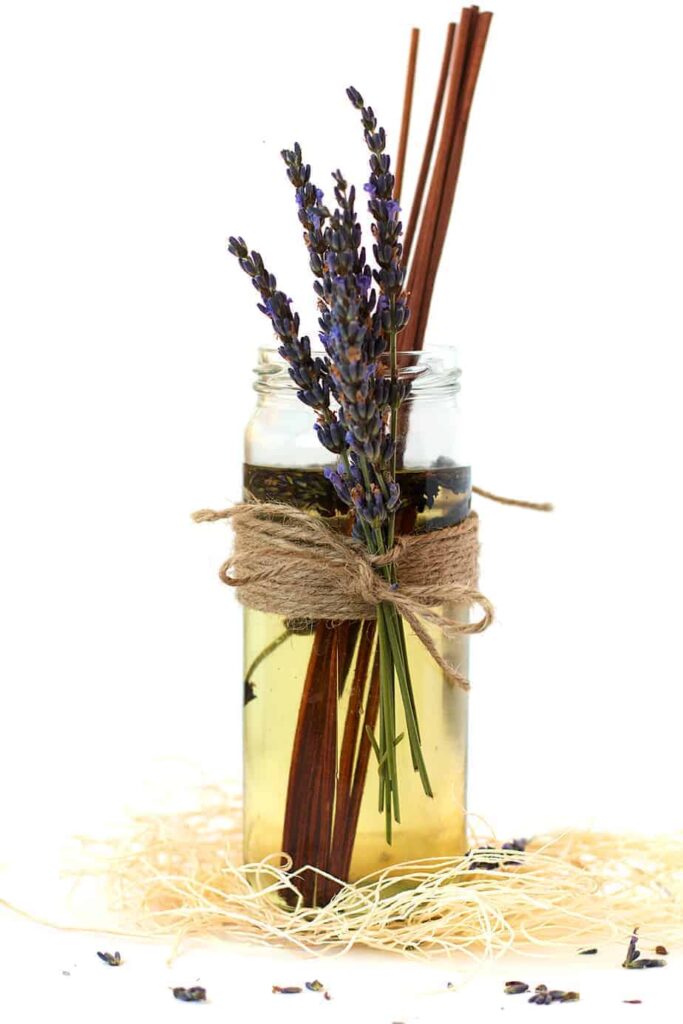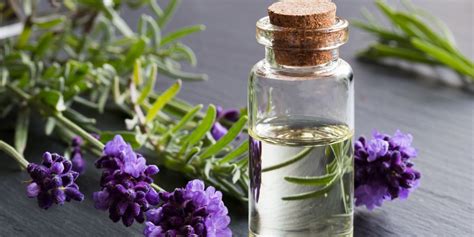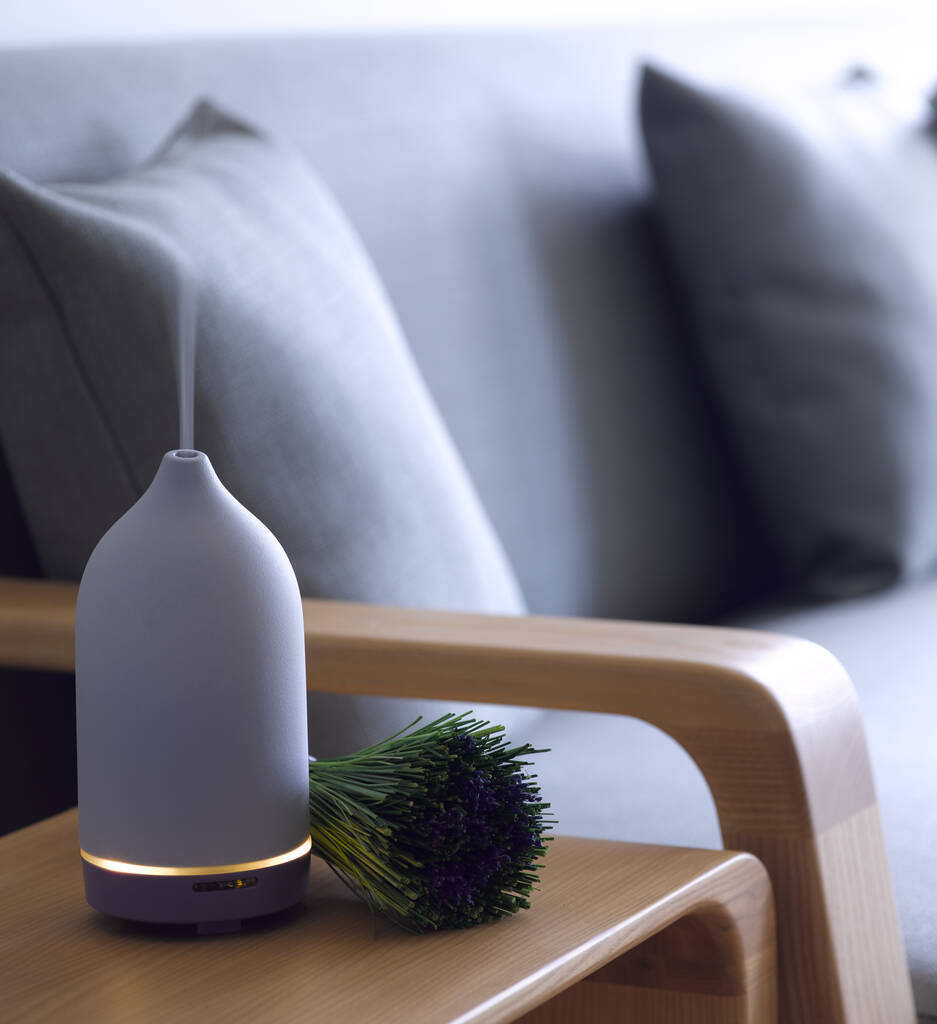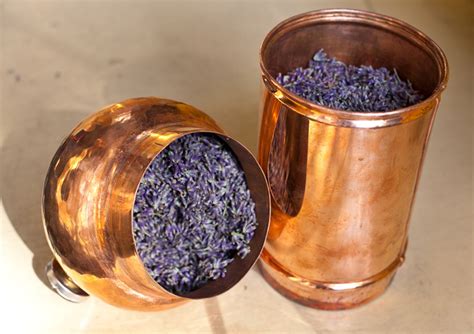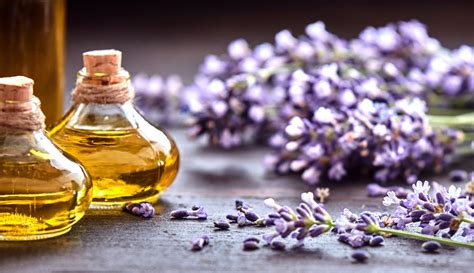
Why rewrite the knowledge when the awesome humans over at Dr. Axe have done such a stellar job at deep diving into the benefits and uses of Lavender Essential Oil? Enjoy our abridged version of this article below & visit Dr. Axe for more credible essential oil information.
Did you know that lavender essential oil is the most used essential oil in the world today & it’s been used both cosmetically and therapeutically for centuries?
The Ancient Egyptians used lavender for mummification and as a perfume. When King Tut’s tomb was opened in 1923, there was said to be a faint scent of lavender that could still be detected after 3,000 years.
There is an abundance of evidence that points out the amazing capabilities of this oil. Let’s dig into some of the benefits of Lavender Essential Oil.
10 Benefits of Lavender Essential Oil
Antioxidant Protection
Lavender is a botanical antioxidant that works to prevent and reverse disease by oxygenating and protecting the cells of the body. A 2013 study published in Phytomedicine found that it increased the activity of the body’s most powerful antioxidants — glutathione, catalase and superoxide dismutase (SOD). More recent studies have indicated similar results, concluding that lavender has antioxidant activity and helps prevent or reverse oxidative stress.
Free radicals, like toxins, chemicals and pollutants, are one of the most dangerous and most common risk factors for every disease that affects people today aside from stress. Free radicals are responsible for shutting down the immune system and can cause severe damage to your body.
Our body’s natural response to free radical damage is to create antioxidant enzymes — mainly glutathione, catalase and superoxide dismutase (SOD) — that stop free radicals from doing their damage.
If the free radical burden is great enough, our bodies can become deficient in antioxidants, which has become increasingly common due to poor diet & high exposure to toxins in foods and the environment.
Enter Mother Natures plant medicines to assist us in returning our bodies to balance and eliminating disease.
Use tip!
To use lavender oil for antioxidant support, diffuse it at home, apply it topically in body products. Take internally – think teas, lemonade, smoothies, fresh juices, capsules. DO Consult an experienced aromatherapist or aromatic medicine professional for internal/ supplementation use.
NOTE: Lavender is generally considered safe for use during pregnancy consult your physician or qualified aromatherapist if on any pharmaceutical medications.
Learn more: https://pubmed.ncbi.nlm.nih.gov/233519/
Helps Treat Diabetes
In 2014, scientists from Tunisia set out to complete a fascinating task: to test the effects of lavender on blood sugar to see if it can help reverse diabetes naturally.
During the 15-day animal study, the results observed by researchers were absolutely amazing. In a nutshell, lavender essential oil treatment protected the body from the following diabetes symptoms:
- Increased blood glucose (the hallmark of diabetes)
- Metabolic disorders (especially fat metabolism)
- Weight gain
- Liver and kidney antioxidant depletion
- Liver and kidney dysfunction
- Liver and kidney lipoperoxidation (when free radicals “steal” necessary fat molecules from cell membranes)
Although more research is needed to understand the full capacity of lavender for the prevention or reversal of diabetes, the results of this study are promising and indicate the therapeutic potential of the plant extract.
Use tip!
To use it for diabetes, use it topically on your neck and chest, diffuse it at home, or supplement with it. DO Consult an experienced aromatherapist or aromatic medicine professional for internal/ supplementation use.
Learn more: https://pubmed.ncbi.nlm.nih.gov/24373672/
Improves Mood + Reduces Stress
In antiquity, lavender was used to treat neurological issues like migraines, stress, anxiety & depression. Modern science is continuing to expand its knowledge of ancient medicines through studies.
There are several studies showing the plant’s effects on stress and anxiety levels. Here we highlight a few.
A study published in 2012 involved 28 high-risk postpartum women and noted that by diffusing lavender in their homes, they had a significant reduction of postnatal depression and reduced anxiety disorder after a four-week treatment plan of aromatherapy.
The International Journal of Neuropsychopharmacology published a human study in 2014 that revealed that Silexan (otherwise known as lavender oil preparation) was more effective against generalized anxiety disorder than placebos and the prescription medicine paroxetine. After treatment, the study found zero instances of withdrawal symptoms or adverse side effects.
A study from 2019 found that inhaling Lavandula is one of the most powerful anxiolytic oils, as it reduces peri-operative anxiety and can be considered a potential sedative for patients undergoing surgical procedures and anesthesia.
Lavender has also been shown to improve PTSD symptoms. Eighty milligrams of lavender oil per day helped decrease depression by 33 percent and dramatically decrease sleep disturbances, moodiness and overall health status in 47 people suffering from PTSD, as shown in a phase two trial published in Phytomedicine.
Use tip!
To relieve stress and improve sleep, put a diffuser by your bed to diffuse oils while you sleep at night or in the family room while you’re reading or winding down in the evening. Use 1-2 drops topically behind your ears and on temples. Take internally- think teas, lemonade, smoothies, fresh juices, capsules. DO Consult an experienced aromatherapist or aromatic medicine professional for internal/ supplementation use.
Learn more: https://pubmed.ncbi.nlm.nih.gov/23808618/
Supports Brain Function
The neurological benefits of lavender don’t stop at its ability to treat depression & boost mood. Research also shows that it serves as a potential natural treatment for Alzheimer’s disease.
Studies conducted on rats and mice show that inhaling the oil’s vapors can help reduce brain oxidative stress and improve cognitive impairment.
Also in 2012, the Swiss journal Molecules printed the results of an animal study suggesting that lavender is a viable treatment option for neurological dysfunctions such as stroke. Researchers believe that lavender’s neuroprotective effects are due to its antioxidant properties.
Use tip!
To support the nervous system with lavender oil, diffuse it at home, inhale it directly from the bottle or apply 1-2 drops topically to the temples and back of neck.
Learn More: https://pubmed.ncbi.nlm.nih.gov/23351960/
Treats Burns + Cuts
Widely known for its antimicrobial properties, for centuries lavender oil has been used to fight various infections and combat bacterial and fungal disorders. In fact, almost 100 studies have been conducted establishing this benefit of lavender over and over again.
Research shows that it speeds the healing of burns, cuts, scrapes and wounds — and a big part of this is because of its antimicrobial compounds.
A study published in Evidence-Based Complementary and Alternative Medicine evaluated how Lavandula’s antimicrobial ability is enhanced when it’s blended with other essential oils, like clove, cinnamon and tea tree oil. Researchers relayed that a 1:1 ratio of these oils was found to be the most effective in fighting against Candida albicans and Staph aureus — two common causes of many fungal and bacterial infections that lead to respiratory pneumonia and skin fungi.
A 2016 study conducted on rats found that lavender oil promoted wound healing in the early phase by accelerating the formation of granulation tissue (tissue from the healing surface of the skin) and promoting collagen synthesis. The area of wounds treated with lavender oil was significantly decreased compared to the control group.
Use tip!
For burn relief and to treat cuts, scrapes or wounds, mix three to five drops of lavender oil with ½ teaspoon of coconut oil, and apply the mixture to the area of concern. You can use your fingers or a clean cotton ball.
Learn More: https://pubmed.ncbi.nlm.nih.gov/23737850/
Promotes Healthy Skin + Hair
Most likely due to its antimicrobial and antioxidant characteristics, Lavandula mixed with a carrier oil (like coconut, jojoba or grapeseed oil) has profound benefits on your skin.
Using lavender oil topically can help improve a number of skin conditions, from canker sores to allergic reactions, acne and age spots. Research indicates that its anti-inflammatory and antioxidant properties help ease skin conditions and reverse signs of aging.
Studies also show that lavender oil, along with other essential oils like thyme, rosemary and cedarwood, can significantly improve alopecia areata and hair loss when massaged into the scalp daily.
Use tip!
To use lavender oil for skin health, combine three to four drops with ½ teaspoon of coconut or jojoba oil, and massage the mixture into the area of concern. You can also add lavender to your face or body wash.
Try mixing lavender oil with frankincense and applying it to your skin first thing in the morning, right after you shower and right before bed. This will help to reduce inflammation and signs of aging, like dark spots.
Learn More: https://www.ncbi.nlm.nih.gov/pmc/articles/PMC3931201/
Relieves Headaches
If you are one of the millions of people struggling with tension or migraine headaches, lavender oil may just be the natural remedy you’ve been looking for. It’s one of the best essential oils for headaches because it induces relaxation and relieves tension. It works as a sedative, anti-anxiety, anticonvulsant and calming agent.
A study published in European Neurology found people struggling with migraine headaches saw a significant reduction in pain when they inhaled lavender oil for 15 minutes. The difference between the control group and lavender oil treatment group was statistically significant.
Of the 129 headache attack cases, 92 responded entirely or partially to the treatment.
Use tip!
One of the most effective natural headache remedies is combining two drops each of lavender with peppermint oil and rubbing the mixture into the back of the neck and the temples. Diffusing lavender or inhaling it directly from the bottle can also help relieve headaches.
Learn more: https://books.ncbi.nlm.nih.gov/NBK92761/
Improves Sleep + Insomnia
Because of Lavandula’s sedative and calming properties, it works to improve sleep and treat insomnia. A 2020 study indicates that Lavandula is an effective and reliable approach to enhance sleep quality in patients with life-limiting illnesses.
There are several studies, just like this one involving mothers, that demonstrate the sleep-inducing, calming effects of lavender oil.
Inhaling lavender has shown to reduce sleep disturbance, improve quality and duration of sleep, fight insomnia, and improve overall well-being.
Plus, unlike most sedative drugs, lavender does not cause any unwanted side effects. It actually promotes general mental and physical health.
Use tip!
To improve your quality of sleep, diffuse lavender oil in your bedroom before or during sleep. Also, you can rub three to five drops directly on your neck, chest and temples.
Bath lover? I am! Add 15 drops of lavender and one cup of Epsom salts to the bathtub is another effective way to use lavender oil to improve sleep & relax the body.
Making a mixture of lavender oil, Roman chamomile and magnesium oil is the best combination for improving sleep. Just rub this mixture into the back of your neck and wrists to induce a calm, peaceful feeling.
Learn more: https://pubmed.ncbi.nlm.nih.gov/22517298/
Relieves Pain
Several studies have found that Lavandula helps as a natural painkiller. Simply rubbing it into the area of concern can reduce inflammation and pain intensity, helping alleviate the symptoms of many health conditions.
A 2015 study published in Complementary Therapies in Medicine indicates that topical application of lavender oil decreases moderate intensities of pain during the insertion of dialysis needles. Researchers point out that lavender may be an option to reduce the pain of inserting dialysis needles, which causes constant fear and anxiety for many hemodialysis patients.
Another study, published in the Journal of Complementary and Alternative Medicine, found that a combination of lavender, marjoram, peppermint and black pepper essential oils improved neck pain when applied to the affected area daily.
And yet another study proved that lavender oil, when massaged into the skin, can help relieve dysmenorrhea, which is associated with menstrual pain and cramping in the lower abdomen. The results of this study suggest that lavender oil can be used as a natural remedy for PMS and menstrual cramps.
Use tip!
For pain relief, mix three to five drops of lavender oil with ½ teaspoon of coconut oil, and apply the mixture to the area of concern. You can use your fingers or a clean cotton ball.
Learn More: https://www.ncbi.nlm.nih.gov/pmc/articles/PMC4443384/
Complementary Therapy for Cancer
A 2012 study published in the African Journal of Traditional, Complementary and Alternative Medicines shows that aromatherapy, particularly using lavender oil, helps patients with cancer cope with stress, nausea, chronic pain and depression. Because lavender oil works to stimulate the immune system, boost mood, improve sleep and fight stress, it can be used as a therapeutic agent.
Massaging lavender oil into the back of your neck, chest, wrists and temples can induce relaxing and calming effects. If you are experiencing muscle or joint pain, or pain at the site of injections, apply two to three drops of lavender to the affected area.
Use tip!
To relieve stress and anxiety, and improve sleep, diffuse lavender, or inhale it directly from the bottle. This can be particularly useful before and after surgical procedures and chemotherapy treatment.
Learn More: https://www.ncbi.nlm.nih.gov/pmc/articles/PMC4325408/
& https://www.ncbi.nlm.nih.gov/pmc/articles/PMC3746639/
Add more lavender oil to your life!!!
Lavender is one of the gentlest oils, making it a great option for beginners, and it’s versatile.
When shopping for a quality product, choose one that’s Certified USDA Organic, non-GMO and free of synthetic fragrances. Also opt for a product in a glass bottle that has a clear label and notes that it’s 100 percent pure essential oil. This will ensure that you get the best results.
Natural Perfume
Do you want to smell good without using toxic perfumes? Lavender is a great scent for both women and men.
Use as natural perfume by adding 2-3 drops of pure oil directly to your skin, or dilute 5-10 drops in water or with a carrier oil for a more subtle scent.
For an aromatic body or hair mist add 2 drops to a spray bottle with about ½ cup of water. Shake up the spray bottle, and then spray your temple.
Consider combining lavender oil with other relaxing oils, like cedarwood essential oil or frankincense essential oil.
Health Inducing Air Freshener
The same way you use lavender oil as a perfume, you can use it around your home as a natural, toxic-free air freshener. Either spray it around your home, or try diffusing it.
To create a relaxing atmosphere in your bedroom before you fall asleep, try spraying a lavender and water mixture directly onto your bedsheets or pillow.
You can try the same method in your bathroom as well and also on your bath towels. Before taking a relaxing bath or shower, spray your towel with lavender so its calming scent is waiting for you when you step out of the shower.
For an air freshener & fabric spray add 5-10 drops to a spray bottle with about 8oz of water. Shake up the spray bottle, and then spray whatever you’d like.
Stomach Discomfort Remedy
Many people find the scent of lavender to be soothing to the stomach. If you are feeling nauseous or know that you are going to be traveling in a car or plane and are prone to motion sickness, spray some on your skin and clothes, or rub it into your temples, neck and palms.
Flavor Additive
Lavender is a great flavor enhancer in things like grain-free muffins, teas and even salad dressings. It’s completely edible, but you will want to use a very small amount since the taste is very powerful.
You’ll also want to purchase only a high-quality, 100 percent pure grade oil from a reputable company.
Try adding 1–2 drops to your recipes for a deliciously floral flavor enhancer. It’s is said to pair perfectly with dark cocoa, pure honey, lemon, cranberries, balsamic vinaigrette, black pepper and apples.
Hold Up – Risks & Side Effects
For most people, Lavandula angustifolia benefits are all that you’ll experience, and using its extract is completely safe. However, there has not been an extensive amount of scientific research done on lavender oil use in certain circumstances so there are situations where you will want to use caution.
- Medication Interactions: If you are already taking any prescription medication for sleep-related disorders or depression, be cautious of the fact that Lavandula can increase the effectiveness of these medications. Even if you use an over-the-counter sleep aid or any type of sedatives (even cough or flu medicine), keep in mind that lavender makes many people sleepy and even somewhat drowsy, so it’s best to not combine lavender oil with other medications or sleep-related supplements. If you are planning on undergoing anesthesia in the near future, you will also want to avoid using lavender oil.
- Pregnant Women: Research suggests that lavender is generally considered safe for women who are pregnant and nursing. Because it can have a relaxing effect on muscles and can also affect hormone levels, use lavender with caution in your third trimester or if you are on any medications. It’s best to speak with your doctor & a qualified aromatherapist about use of any essential oils when pregnant.
- Children: Lavender oil is considered generally safe for children to use, although there is some concern that lavender’s effect on hormone levels could be harmful for boys who have not yet gone through puberty. Although there isn’t strong evidence for Lavandula being a hormone disrupter (only one or two very small studies were ever completed), parents are told to use caution if using lavender oil frequently on young children.
- Ingesting Lavender Oil: A 2013 evidence-based article highlighted that lavender can be ingested at a large dose of 80 to 160 milligrams without adverse effects, except for minor gastrointestinal symptoms. To avoid gastrointestinal irritation, keep internal use to a minimum, and be careful if you have a sensitive digestive system. There are no known food interactions of lavender oil at this time.
General Safety Information
Do not take any oils internally and do not apply undiluted essential oils, absolutes, CO2s or other concentrated essences onto the skin without advanced essential oil knowledge or consultation from a qualified aromatherapy practitioner. For general dilution information, read AromaWeb’s Guide to Diluting Essential Oils. If you are pregnant, epileptic, have liver damage, have cancer, or have any other medical problem, use oils only under the proper guidance of a qualified aromatherapy practitioner. Use extreme caution when using oils with children and be sure to first read the recommended dilution ratios for children. Consult a qualified aromatherapy practitioner before using oils with children, the elderly, if you have medical issues or are taking medications. Before using this or any essential oil, carefully read AromaWeb’s Essential Oil Safety Information page. For in-depth information on oil safety issues, read Essential Oil Safety by Robert Tisserand and Rodney Young.
Our Lavender Luxury Collection is the perfect way to add more lavender to your life for skin protection/healing, anti-aging, hair growth, scalp health, stress & anxiety relief, massage & more. ENJOY!


